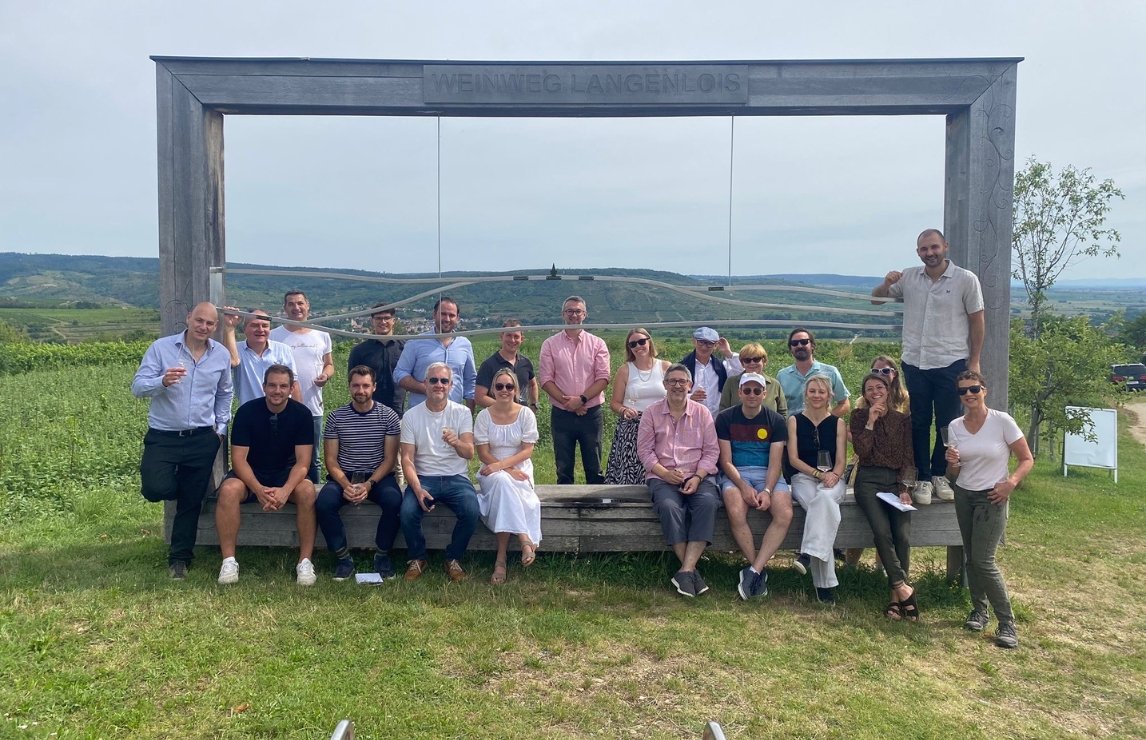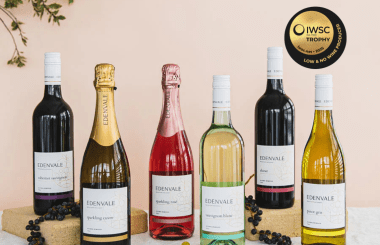IWSC Judges: Austria's native varieties are tactile, phenolic, and exciting
The IWSC recently headed to Austria for its second Wine Judging in the country. After the event, our international experts sat down to discuss the unique qualities of Austrian wines and share their advice to producers looking to break into the UK market.
Overall, our judges were pleased with the consistency and quality of the wines they tasted, awarding a high amount of silver medals and finding huge diversity amongst the regions.
"Consistency and high quality were the key themes for me and I was really surprised by how gastronomic a lot of the wines were! There’s tremendous opportunity in hotels to show the diversity of Austria and highlight the unique, interesting indigenous varieties and styles that are slightly off-piece but still relatable," shared Luke Harbor, IWSC judge and Group Beverage Director of THE PIG hotels group.
As expected, Grüner Veltliner was the standout grape. The Wine Judging Committee member who oversaw the panels, Dirceu Vianna Junior MW, highlighted the versatility of Grüner: "The variety itself is so versatile from really zingy, fresh, vibrant character, like citrus and green apple to richer, more opulent styles".
Rebecca Palmer, IWSC judge and Associate Director and Buyer at Corney and Barrow, agreed and underlined the potential of the variety in the UK market. "In terms of the on-trade sector throughout the UK, there’s such a huge potential for Grüner. "Whether it’s the more straightforward styles or the more powerful styles, for many of these wines it's not just about the distinctive primary fruit profile, but the texture. They've got so much class and guile, and they're so impressive and subtle."
Speaking of the on-trade side, Luke Harbor encouraged sommeliers to add Grüner by the glass to their wine lists: "Grüner is a discovery wine to a lot of our guests, it's almost a gateway into the rest of Austria as well. When done by the glass, it offers a snapshot window into some of the other opportunities in Austria."
Several other varieties also performed well, with Dirceu Vianna Junior MW drawing attention to the Sauvignon Blanc and Chardonnay. "We had some really excellent Sauvignon Blanc from the south and some wonderful Chardonnay."
Our judges were excited to have the opportunity to try some of the lesser known grape varieties, including Zierfandler. "This is not a widely planted grape withjust over hundreds of hectares but when you do discover it, it’s wonderful," shared Junior before going on to point out the saleability of some of Austria’s lesser known grapes. "Why not recommend something slightly different to people who like wines like a Pinot Grigo? A lot of these indigenous varieties are similar in terms of profile, but with lovely underpinning freshness."
"I think I was really surprised with Austria’s native varieties, some of which were real discovery wines for me. In a few words they were tactile, phenolic, interesting, and exciting. They were just really great wines," shared Luke Harbor.
Samantha Glanfield, IWSC judge and Senior Wine Buyer at Sainsbury’s, echoed her fellow judges' thoughts and added: "I think there's a real trend in national retailers to be offering customers something new and something different. But it can't just be new for the sake of new for customers. It really has to deliver on a taste perspective. And I think that's what I'll take away from this year, is that I've discovered some grapes that I've never heard of over the last couple of days, but they all have their merits."
While Austria might be more well known for its white wines, our panel were impressed with the red wine entries this year. "They are famous for white wine, but if you look at the export market, quite a lot of what Austria exports is actually red wine!" pointed out Junior.
One of the red varieties that caught our judge’s attention was Zweigelt. One judge compared it to the more widely drunk Malbec, highlighting the "drinkability and exuberance of the fruit" and stating that the grape has great potential in mainstream retail.
"The styles that I've particularly enjoyed over the last couple of days are the lesser oaked styles of that kind of crunchy, vibrant red fruit. We're definitely seeing a trend towards kind of lighter styles of red, and that absolutely taps into that," shared Samantha Glanfield.
The panel ended their discussion by sharing their advice to Austrian producers looking to break into the UK market.
Rebecca Palmer, a leading figure in the UK trade encouraged producers to "think outside the box when it comes to categorising their good, better and best." She also urged them to allow the inherent character of the grapes and the sense of place to shine through, highlighting the preciousness and value of the climate, topology and topography. "I've just been really wowed by the way in which the textual quality and the sense of freshness in a warming world has come across in the last couple of days."
Luke Harbor meanwhile advised producers to focus on education, continue to offer great value and simplify their message. "I would offer the advice to really to try and spend the time with sommeliers and simplify some of the complexity and nuance of Austria. It could take a lifetime to understand the nuance of detail in this amazing wine region, but it does make a lot of sense when you spend the time. During our producer visits we spoke to several producers who have helped simplified the terms of the vineyard which makes it more friendly for an English speaking consumer."
Samantha Glanfield echoed this message, saying "I think simplifying the message is so incredibly relevant for national retail. We don't all have the opportunity to hand sell a product, so producers need to make it as easy as possible for a customer to pick something up off the shelf and understand. Producers really need to make it easy for shoppers, because it's a challenging but such a rewarding category! So through packaging and through labeling, make it easy for customers to spend their money
Best Austrian Wines 2024






